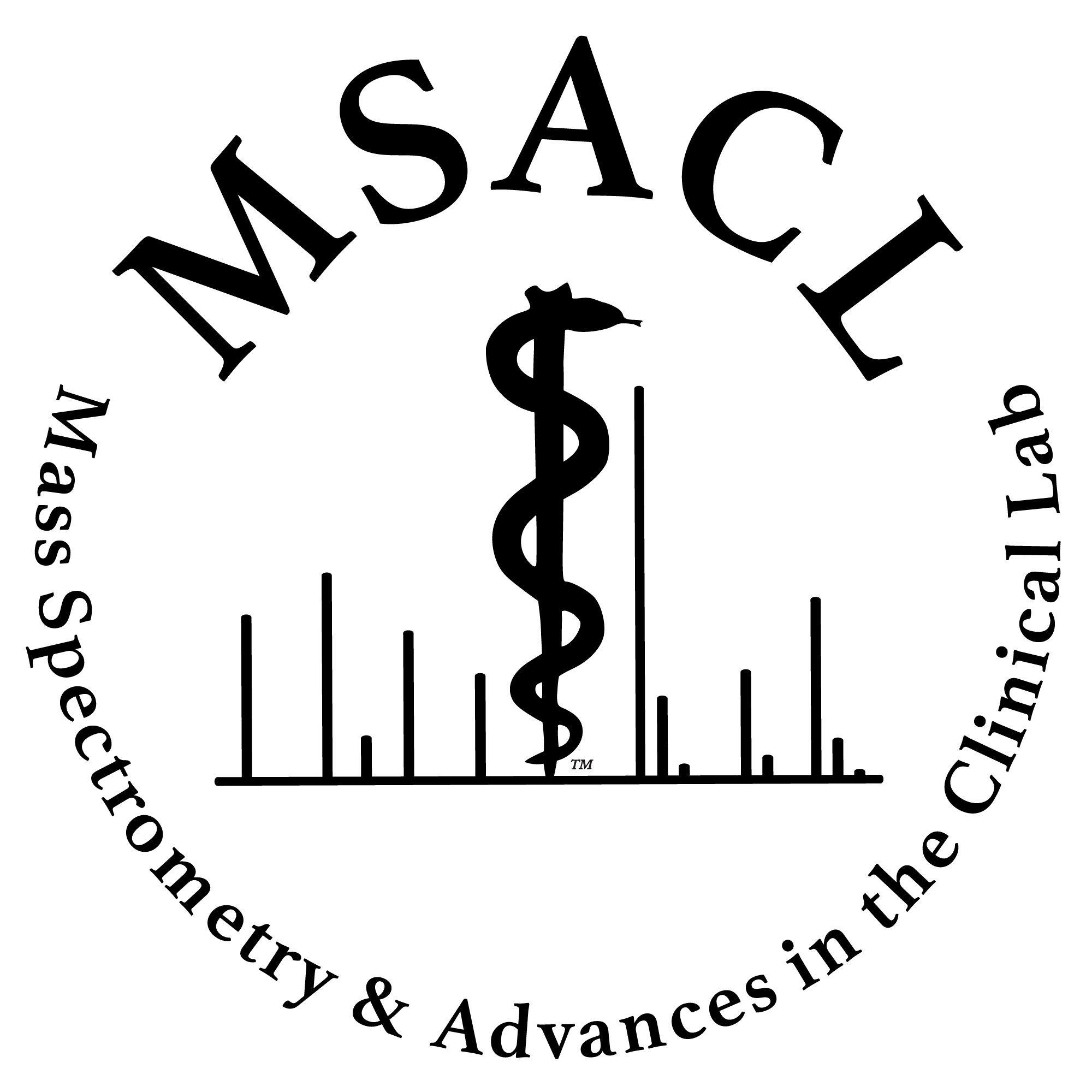MSACL 2022 Abstract
Self-Classified Topic Area(s): Troubleshooting
|
|
Poster Presentation
Poster #29b
Attended on Wednesday at 18:00
|
|
 Communicating Proteogenomics Data to Physicians Communicating Proteogenomics Data to Physicians
Sudhir Putty Reddy, PhD, Aileen Alontaga, PhD, Eric Welsh, PhD, Rodrigo Carvajal, PhD, Theresa Boyle, MD/PhD, Eric Haura, MD, Steven Eschrich, PhD, and John Koomen, PhD
Moffitt Cancer Center, Tampa, FL, USA

|
John Koomen, PhD (Presenter)
Moffitt Cancer Center |
|
Presenter Bio: Research in the Koomen Laboratory focuses on analytical chemistry development, elucidation of biological processes, and implementation of clinical assays using proteomics, metabolomics, and quantitative mass spectrometry. Much of this work is performed using liquid chromatography-multiple reaction monitoring mass spectrometry (LC-MRM). We have developed a 97 protein panel that is being applied to prescreening, selection of therapy, and matching to clinical trials. We are evaluating cancer signaling proteins, immune cell markers, and other biomarkers in the context of the tumor phenotype using this highly multiplexed approach. In multiple myeloma, this technique is being applied to develop novel strategies to evaluate tumor burden. Current clinical assays use gel or capillary electrophoresis to measure the antibody secreted by the myeloma, which is used to stage the patients and estimate tumor burden. Quantitative mass spectrometry should be significantly more sensitive at detecting and quantifying these antibodies. Improvements in the analytical technique would lead to earlier detection of disease relapse, more rapid intervention with second line therapies, and potentially improved patient outcomes. These projects share the common goal of changing the standard of patient assessment and care using mass spectrometry. |
|
|
|
|
Abstract Summary
Molecular diagnostics for lung cancer have become increasingly complex. Multiplexed genomics assays can be complemented with the proteomic phenotypes to further support clinical decision-making, yet these increases in data produce additional barriers to the effective use of this information in the clinic. While individual lab test results can be communicated effectively from the clinical lab to the patient and physician, cancer researchers and treating physicians are now faced with a large variety of therapeutic options that have specific companion diagnostics. In order to make the information available and to support ranking of therapeutic options to maximize expected patient benefit, complex proteogenomic data must be related to the physicians in an accessible way that still enables thorough review.
Abstract Detail
1. Problem
Detailed molecular characterization of lung cancer is necessary to rank therapies according to their expected benefit to the patient. Numerous treatment options are now available, including chemotherapy, targeted therapy, and immunotherapy as well as novel approaches in clinical trials. In addition, some tumor subtypes (e.g. adenocarcinomas driven by ALK fusions) are observed only in a small proportion of the patient population. Targeted proteomics and genomics panels including drug targets and known biomarkers can be used to characterize genes and proteins and help direct treatment for each individual cancer patient. However, the results often indicate multiple options could be effective, so better methods are needed to triage patients for FDA-approved companion diagnostics, specific treatment regimens, and clinical trials.
2. Method Information
We are developing an application that would enable the user to review the proteogenomic profile of each individual tumor in the context of the overall population for patient classification. In addition, data for patient outcomes will also be included to assist the physician in prioritizing regimens that would provide the most benefit based on the molecular characterization from proteogenomics. Data will be presented to summarize genomic and proteomic data for each gene/protein. Heat maps with unsupervised clustering visualize molecular classification of tumors. Waterfall plots displaying the levels of protein or gene expression can rank the patient in the context of the population. Ultimately, these data can be linked to outcomes and used to select therapies for each individual patient.
3. Troubleshooting Steps
A test case has been developed using lung cancer cell lines that leverages publicly available genomics data and drug sensitivities as well as proteomics data generated in-house to explore data visualization. Data acquisition is underway for tumor tissue samples using different clinical vignettes (e.g. response to EGFR or MET targeted therapy) to help further develop the ability to communicate complex data acquired from patient specimens.
4. Outcome
The goal for this troubleshooting poster is to obtain feedback on our communication strategy from the MSACL community. Comments on the existing strategies and suggestions for additional novel approaches are welcome.
|
|
Financial Disclosure
| Description | Y/N | Source |
| Grants | yes | Bristol Myers Squibb (unrelated to this discussion) |
| Salary | no | |
| Board Member | no | |
| Stock | no | |
| Expenses | no | |
| IP Royalty | no | |
| Planning to mention or discuss specific products or technology of the company(ies) listed above: |
no |
|

